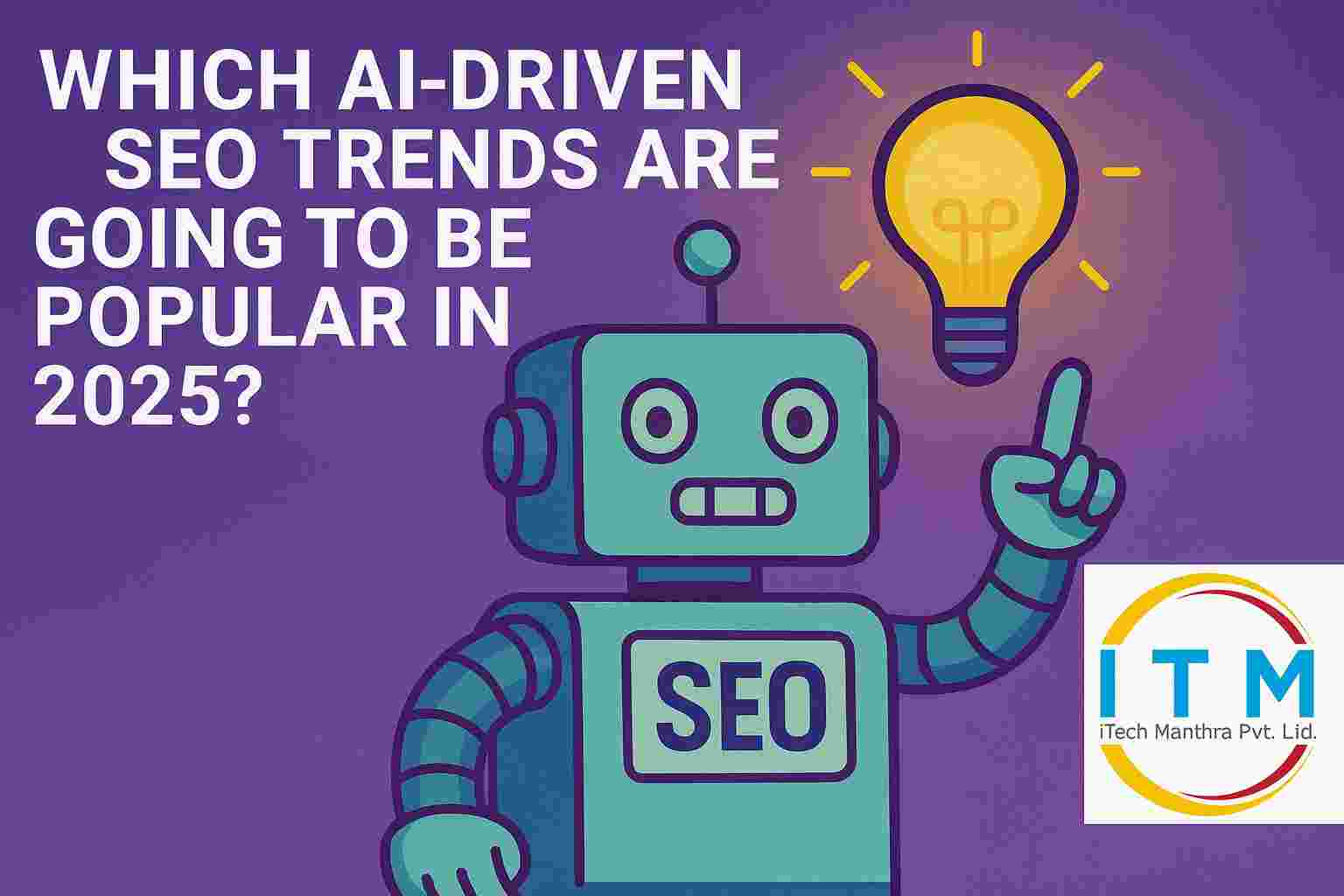It is only in the present that SEO is conversational, intelligent, and user-oriented, unlike what we would have imagined in 2025 because AI and ML have grown very fast. Today, we need to ask if it is plausible for search engines like Google, Bing, and DuckDuckGo to process and rank content through generative AI, Search Generative Experience, or Entity-based indexing.
Let’s take a look at what has changed and how you can adapt.
In what ways will AI affect search engine optimization in 2025?
Basically, it is AI that defines how we discover, assess, and prioritize content. Now that the search engine has become an answer engine, traditional methods of SEO need to start changing.
Big transformative changes carried by AI:
Contextualizing and personalizing search results using device information and user history
Directly integrating AI-generated snippets into search results through Google’s Search Generative Experience (SGE)
Delivering content to clickless searches using AI chatbots and assistants such as ChatGPT, Gemini, and Perplexity.
Top 10 Emerging AI SEO Trends For 2025 (With Actionable Tips)
1. AI-Powered Search Generative Experience (SGE)
What it is: Google SGE generates AI answers at the very top of the SERP.
Tip: Optimize for conversational queries and expert-driven summaries. Be direct in answering questions using well-structured, factual content.
2. First-Person Authoritativeness (EEAT)
What it is: Search engines now favor content that is established from personal experience, has credible evidence to support it, and is able to demonstrate expertise.
Tip: Employ author bios and genuine case studies; utilize first-hand data; statements such as “I tested…” or “In our agency…” should be used.
3. Voice Search Optimization Becomes Standard
What it is: By 2025, over 60% of searches worldwide will have voice as their input medium, with AI interpreting and understanding the query in almost the same way.
Tip: Structure your content with:
Question-based headings
Usage-based answers of 30 to 50 words
FAQ & How-to schema
4. Content Clustering and Topic Authority
What it is: AI-based tools like Surfer, WriterZen, and Frase help you put into practice topic clusters for the development of topical authority.
Tip: Generate primary topics (pillar content) and subtopics that interlink; KeywordInsights.ai is an example of a great tool for generating such clusters.
5. AI-Powered Entity SEO
What it is: Keywords are yesterday’s news… Google has understood that entities (things, places, people) are the new means to look. Hint: use your schema/data and linked Wikipedia to add more trusts onto SE’s.
6. Zero-Click Searches Optimization
What it is: Increasingly, users find what they want to find without the need to click on anything, making snippets, carousels, and AI-driven chat interfaces even more important.
Tip: Optimize for:
Featured Snippets
People Also Ask
AI Assistant Reads
7. AI-Content Validation and Hallucination Control
What it is: Google is punishing AI-created content if they are not accurate and trustworthy.
Tip: Always:
Fact-check AI-written content
Cite credible sources
Blend human insights with machine-written content
8. Predictive SEO with AI
What it is: AI-based tools now predict trending topics and seasonal demand basing trends on behavior data.
Tip: Use platforms like:
Exploding Topics
Semrush Trends
Google Trends (AI forecast mode)
9. AI-Assisted Video & Multimodal SEO
What it is: Google is indexing videos, images, and audio content through AI, and the importance of video transcripts and spoken keywords has increased.
Tip: Optimize videos with:
Captions + transcripts
Video schema
Descriptive filenames and tags
10. Hyper-Personalized SERPs
What it is: Hyper-Personalized SERPs
Device Type
Location
Past behaviour
Tip:Optimize content for multiple formats (mobile, voice, desktop) and create geo-targeted pages.
Best AI Tools for SEO
WriterZen helps you find strong topic clusters and create content that actually ranks by focusing on authority and user intent.
Frase.io is great for building voice-friendly outlines and answering common search queries in a clear format.
Surfer AI acts like a live editor, guiding you to match the right keyword usage and structure as you write.
NeuronWriter focuses on entity-based SEO, helping you stay ahead by analyzing how competitors cover each topic.
Exploding Topics shows you what’s gaining attention online so you can jump on rising trends before they peak.
Setting Your SEO Strategy for AI in 2025 – Step-By-Step
Step 1: Focus on Human-Centered Content
Use First-Hand Experience
Add Credibility Markers (Author, Date, Expertise)
Step 2: Structure for AI Assistants
Add FAQ, How-To, Video, and Review Schema
Use Conversational Tone and Natural Phrasing
Step 3: Build Content Clusters
Choose a Pillar Topic
Create 5–10 Related Articles
Use Internal Linking and Semantic Anchors
Step 4: Monitor SGE and Zero-Click Opportunities
Optimize for Snippet Placement
Track Voice and Chat Traffic Using Tools Like SerpWatch
Step 5: Validate All AI Content
Use Tools Like Originality.ai or AI Content Detector
Add Human Editing, Citations, and Trust Signals
FAQ
Will AI content still do good for SEO in 2025?
Yes, but if edited and fact-checked well, AI-written content ranks if:
Original
Human Reviewed
Structured for Voice & Snippets
Will Traditional Keywords Die Out Today?
Not exactly. Keywords are now part of a bigger semantic structure, and AI is looking not for repeated phrases but entities and relationships.
What Is Google Search Generative Experience (SGE)?
SGE is Google’s AI-powered SERP feature which answers complex questions in a conversational manner-even before it shows the blue links.
Conclusion: Will AI SEO Be in the Future?
It is, but not without human creativity and trust. Best SEO strategies in 2025 will be a hybrid of AI automation, and data-driven tools with human authenticity.
Kumar Swamy is the CEO of Itech Manthra Pvt Ltd and a dedicated Article Writer and SEO Specialist. With a wealth of experience in crafting high-quality content, he focuses on technology, business, and current events, ensuring that readers receive timely and relevant insights.
As a technical SEO expert, Kumar Swamy employs effective strategies to optimize websites for search engines, boosting visibility and performance. Passionate about sharing knowledge, he aims to empower audiences with informative and engaging articles.
Connect with Kumar Swamy to explore the evolving landscape of content creation!
